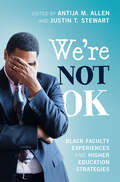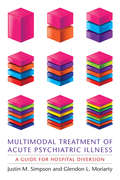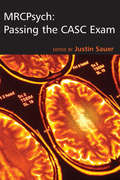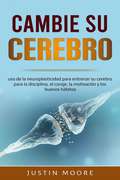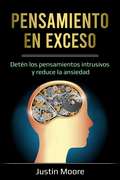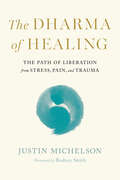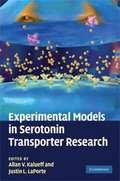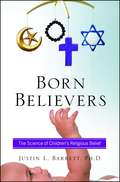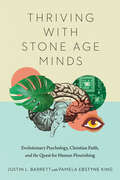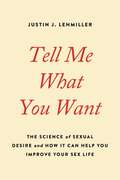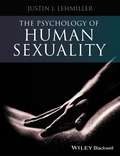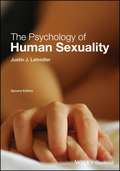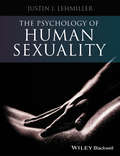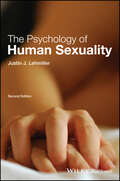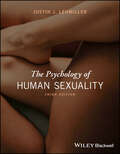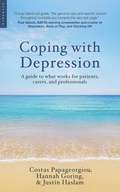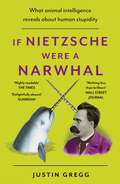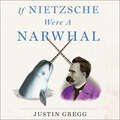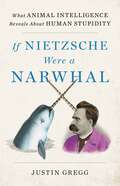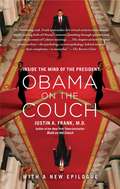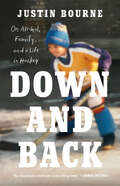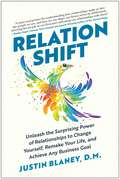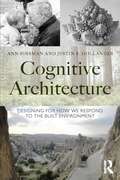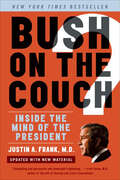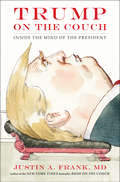- Table View
- List View
We're Not OK: Black Faculty Experiences and Higher Education Strategies
by Antija M. Allen Justin T. StewartIn the United States, only 6% of the 1.5 million faculty in degree-granting postsecondary institutions is Black. Research shows that, while many institutions tout the idea of diversity recruitment, not much progress has been made to diversify faculty ranks, especially at research-intensive institutions. We're Not Ok shares the experiences of Black faculty to take the reader on a journey, from the obstacles of landing a full-time faculty position through the unique struggles of being a Black educator at a predominantly white institution, along with how these deterrents impact inclusion, retention, and mental health. The book provides practical strategies and recommendations for graduate students, faculty, staff, and administrators, along with changemakers, to make strides in diversity, equity, and inclusion. More than a presentation of statistics and anecdotes, it is the start of a dialogue with the intent of ushering actual change that can benefit Black faculty, their students, and their institutions.
Multimodal Treatment of Acute Psychiatric Illness: A Guide for Hospital Diversion
by Glendon Moriarty Justin SimpsonThe multimodal treatment of acute psychiatric illness involves a set of integrated, systematic interventions that stabilize individuals with severe mental illness and help them avoid unnecessary psychiatric hospitalization. This volume focuses on those suffering from schizophrenia, schizoaffective disorder, bipolar disorder, major depressive disorder, severe anxiety, and substance dependence, and provides individual practitioners and professional teams with the tools for responding to crisis and delivering acute care. The authors bolster the text with real-world case examples, helpful diagrams, and printable worksheets.
MRCPsych: Passing the CASC Exam
by Justin SauerA newly-prepared revision guide tailored to the brand new Clinical Assessment of Skills and Competencies (CASC) portion of the MRCPsych exam, containing over 100 clinical scenarios and accompanied by the ideal 'answers' examiners will be looking for.
Cambia tu Cerebro: para entrenar su cerebro para la disciplina, el coraje, la motivación y los buenos hábitos
by Justin MooreCambiar de cerebro no se trata solo de adquirir un hábito específico. Está tomando la resolución de cambiar su estilo de vida para crear la vida que desea tener. Si quieres una vida social robusta y una carrera exitosa, nunca lo conseguirás reteniendo por miedo a decir algo incorrecto. Las personas que prosperan en sus carreras son dueños de sus vidas. Han infundido confianza en sí mismos para que sus mentes los alienten. Se aseguran de que sus manos sean las que están en el volante del vehículo que es su vida. No hacen esto tratando de alcanzar el control sobre cada parte de sus vidas, sino dejando de lado lo que no tienen ningún impacto. Esto libera su tiempo y energía para que puedan concentrarse en lo que pueden controlar, que es su propio comportamiento. La vida está llena de contratiempos. Eso no es algo que podamos cambiar. Lo que podemos hacer es reaccionar ante ellos de una manera que funcione para encontrar una solución para ellos, o no. Para lograr lo primero, debes trabajar por lo que dices que quieres. Piensa en un momento en que has hecho algo con poca confianza en tu capacidad para hacerlo, y tu corazón no estaba en eso, por ejemplo, ir a una presentación cuando no te sientes bien. Ahora piense en cuándo sintió lo contrario: sentirse mejor, gustarle su aspecto y estar seguro de saber lo que se suponía que debía hacer. ¿En qué caso fue mejor tu rendimiento? Es por eso que cambiar tu cerebro está cambiando lo que puedes lograr. Si ha decidido que no puede hacer algo, terminará antes de que comience. Tal vez decidas que no sabes nada sobre una profesión, por lo que nunca podrías hacer una entrada al campo, o que nunca has sido del tipo social, por lo que no tiene sentido retomarla en este momento. No importa dónde se encuentre en su vida, nunca es demasiado tarde para cambiarlo. Tal vez no sea el pasado, pero las elecciones que haga ahora decidirán si su vida continúa de la misma
Pensamiento en Exceso: Detén los pensamientos intrusivos y reduce la ansiedad
by Justin MoorePreocuparse no es algo malo por sí mismo. Demuestra que te importa. Sin embargo cuando llega a ese punto constante y obsesivo, inhibe el éxito. Llegas a estar paralizado por el miedo a cometer un error, haciendo que no te muevas. El pensamiento en exceso es un comportamiento autodestructivo, que cobra un buen peaje tanto en tu salud física y mental. Desarrollarás ansiedad, la que no solo causa sufrimiento emocional, pero con el tiempo afectará tu corazón, sistema digestivo y nervioso, así como otros sistemas en tu cuerpo. El primer paso para resolver un problema es entender exactamente lo que sucede. El pensar en exceso es una cuestión de pensamientos que se pegan en un bucle. Piensa en cuando un retrete se tapa. Si haces correr el agua cuando está tapado, muy pronto tendrás todo un baño inundado. Cuando te obsesionas por un pensamiento aterrador, por ejemplo, “¿Qué tal si todos me odian en secreto?”, esto no solo tomará todo tu tiempo, sino que parecerá volverse real justo enfrente de tus ojos. De pronto, todos están dándote miradas de desprecio y hablándote cortante. Déjame explicar lo que en realidad sucedió. Estabas buscando mirar algo, así que tu mente creó esa realidad. Estás interpretando las miradas palabras de cada uno en una forma que se ajusta a ese miedo. Así es como las personas desarrollan síntomas psicosomáticos de una seria enfermedad. La mente es algo extremadamente poderoso, aprende a usar este acto para tu mejora en vez de tu empeoramiento. Los patrones de pensamiento pueden ser creados y recogidos. Cada vez que has aprendido a trabajar para alguien que hace las cosas diferente a tu previo empleador, tú reentrenaste tu cerebro. Piensa en cuando tuviste que aprender las tablas de multiplicar. Tú pensabas que nunca te las aprenderías todas, y después de suficiente práctica, ya las puedes recitar todas de memoria solo. Tienes que repetir los pensamientos que desafían la ansiedad ci
The Dharma of Healing: The Path of Liberation from Stress, Pain, and Trauma
by Justin Michelson"...Both a refuge and a roadmap, this book illuminates the boundless love and wisdom that lies within each of us, waiting to be uncovered and shared."–Tara Brach, author of Radical Compassion A handbook for spiritual freedom in an age of global crisis.The world is in turmoil because of its trauma. Our unhealed psychological wounds block our innate expressions of wisdom and compassion, setting the stage for ongoing conflict, division, and stress. Our fate, both individual and collective, lies in our capacity to heal emotionally and spiritually—and for that, we need to remember the power, resilience, and essential goodness of our own hearts. This book is for anyone that wants to: Discover the root cause of their suffering and the key principles to heal it.Transform challenging emotions and deepen spiritual insight with simple and intuitive techniques.Integrate these skills and understandings back into relationships and work in the world.In The Dharma of Healing, Justin Michelson walks readers through an ingeniously simple approach to healing and spiritual insight using a unique and powerful form of self-compassion rooted in Buddhist wisdom. With 39 guided meditations that systematically lead readers through a comprehensive inner journey, Michelson provides everything that&’s needed to confidently walk the path of healing ourselves. Synergizing modern styles of emotional work with timeless spiritual practices, he shows how we can recognize painful emotions, transform difficult feelings into positive forces in our lives, and find our spiritual home within. The Dharma of Healing is an essential guide for anyone who longs for inner peace in a world that is so rarely peaceful.
Experimental Models in Serotonin Transporter Research
by Allan V. Kalueff Justin L. LaporteThe serotonin transporter is a key brain protein that modulates the reuptake of the neurotransmitter serotonin from synaptic spaces back into the presynaptic neuron. This control over neuronal signalling makes it a prime area of neuroscientific study. In this book an international team of top experts introduce and explicate the role of serotonin and the serotonin transporter in both human and animal brains. They demonstrate the relevance of the transporter and indeed the serotonergic system to substrates of neuropsychiatric disorders, and explain how this knowledge is translated into valid animal models that will help foster new discoveries in human neurobiology. Writing for graduate students and academic researchers, they provide a comprehensive coverage of a wide spectrum of data from animal experimentation to clinical psychiatry, creating the only book exclusively dedicated to this exciting new avenue of brain research.
Born Believers: The Science of Children's Religious Belief
by Justin L. BarrettInfants have a lot to make sense of in the world: Why does the sun shine and night fall; why do some objects move in response to words, while others won’t budge; who is it that looks over them and cares for them? How the developing brain grapples with these and other questions leads children, across cultures, to naturally develop a belief in a divine power of remarkably consistent traits––a god that is a powerful creator, knowing, immortal, and good—explains noted developmental psychologist and anthropologist Justin L. Barrett in this enlightening and provocative book. In short, we are all born believers. Belief begins in the brain. Under the sway of powerful internal and external influences, children understand their environments by imagining at least one creative and intelligent agent, a grand creator and controller that brings order and purpose to the world. Further, these beliefs in unseen super beings help organize children’s intuitions about morality and surprising life events, making life meaningful. Summarizing scientific experiments conducted with children across the globe, Professor Barrett illustrates the ways human beings have come to develop complex belief systems about God’s omniscience, the afterlife, and the immortality of deities. He shows how the science of childhood religiosity reveals, across humanity, a “natural religion,” the organization of those beliefs that humans gravitate to organically, and how it underlies all of the world’s major religions, uniting them under one common source. For believers and nonbelievers alike, Barrett offers a compelling argument for the human instinct for religion, as he guides all parents in how to effectively encourage children in developing a healthy constellation of beliefs about the world around them.
Thriving with Stone Age Minds: Evolutionary Psychology, Christian Faith, and the Quest for Human Flourishing (BioLogos Books on Science and Christianity)
by Justin L. BarrettWhat does God's creation of humanity through the process of evolution mean for human flourishing? The emerging field of evolutionary psychology remains controversial, perhaps especially among Christians. Yet according to Justin Barrett and Pamela Ebstyne King it can be a powerful tool for understanding human nature and our distinctively human purpose. Thriving with Stone Age Minds provides an introduction to evolutionary psychology, explaining key concepts like hyper-sociality, information gathering, and self-control. Combining insights from evolutionary psychology with resources from the Bible and Christian theology, Barrett and King focus fresh attention on the question, What is human flourishing? When we understand how humans still bear the marks of our evolutionary past, new light shines on some of the most puzzling features of our minds, relationships, and behaviors. One key insight of evolutionary psychology is how humans both adapt to and then alter our environments, or "niches." In fact, we change our world faster than our minds can adapt—and then gaps in our "fitness" emerge. In effect, humans are now attempting to thrive in modern contexts with Stone Age minds. By integrating scientific evidence with wisdom from theological anthropology, we can learn to close up nature-niche gaps and thrive, becoming more what God has created us to be.
Tell Me What You Want: The Science of Sexual Desire and How It Can Help You Improve Your Sex Life
by Justin J. LehmillerA leading expert on human sexuality and author of the blog Sex and Psychology offers an unprecedented look at sexual fantasy based on the most comprehensive, scientific survey ever undertaken. What do Americans really want when it comes to sex? And is it possible for us to get what we want? Justin J. Lehmiller, one of the country's leading experts on human sexuality and author of the popular blog Sex and Psychology, has made it his career's ambition to answer these questions. He recently concluded the largest and most comprehensive scientific survey of Americans' sexual fantasies ever undertaken, a monumental two-year study involving more than 4,000 Americans from all walks of life, answering questions of unusual scope. Based on this study, Tell Me What You Want offers an unprecedented look into our fantasy worlds and what they reveal about us. It helps readers to better understand their own sexual desires and how to attain them within their relationships, but also to appreciate why the desires of their partners may be so incredibly different. If we only better understood the incredible diversity of human sexual desire and why this diversity exists in the first place, we would experience less distress, anxiety, and shame about our own sexual fantasies and better understand why our partners often have sexual proclivities that are so different from our own. Ultimately, this book will help readers to enhance their sex lives and to maintain more satisfying relationships and marriages in the future by breaking down barriers to discussing sexual fantasies and allowing them to become a part of readers' sexual realities.
The Psychology of Human Sexuality
by Justin J. LehmillerThis book offers a comprehensive overview of human sexual behavior from a biopsychosocial perspective.
The Psychology of Human Sexuality
by Justin J. Lehmiller<p>The thoroughly revised and updated second edition of The Psychology of Human Sexuality explores the roles that biology, psychology, and the social and cultural context play in shaping human sexual behavior. The author – a noted authority on the topic and an affiliate of the acclaimed Kinsey Institute - puts the spotlight on the most recent research and theory on human sexuality, with an emphasis on psychology. <p>The text presents the major theoretical perspectives on human sexuality, and details the vast diversity of sexual attitudes and behaviors that exist in the modern world. The author also reviews the history of sexology and explores its unique methods and ethical considerations. Overall, this important and comprehensive text provides readers with a better understanding of, and appreciation for, the science of sex and the amazing complexity of human sexuality.</p>
The Psychology of Human Sexuality
by Justin J. LehmillerThe Psychology of Human Sexuality offers a comprehensive overview of human sexual behavior from a biopsychosocial perspective. The text highlights psychological research and theory on human sexuality whilst also considering the biological, evolutionary, social, and cultural factors that influence our sex lives. Features comprehensive coverage of topics including gender and sexual orientation, relationships, sexual behaviors, sexual difficulties and solutions, prostitution, and pornography Offers more in-depth treatment of relationships than comparable texts, with separate chapters dealing with attraction and relationship processes Written from a sex-positive perspective, and is inclusive and respectful of a diverse audience Includes numerous activities to facilitate a dynamic and interactive classroom environment
The Psychology of Human Sexuality
by Justin J. LehmillerNew edition of an authoritative guide to human sexual behavior from a biopsychosocial perspective The thoroughly revised and updated second edition of The Psychology of Human Sexuality explores the roles that biology, psychology, and the social and cultural context play in shaping human sexual behavior. The author – a noted authority on the topic and an affiliate of the acclaimed Kinsey Institute - puts the spotlight on the most recent research and theory on human sexuality, with an emphasis on psychology. The text presents the major theoretical perspectives on human sexuality, and details the vast diversity of sexual attitudes and behaviors that exist in the modern world. The author also reviews the history of sexology and explores its unique methods and ethical considerations. Overall, this important and comprehensive text provides readers with a better understanding of, and appreciation for, the science of sex and the amazing complexity of human sexuality. Features broad coverage of topics including anatomy, gender and sexual orientation, sexual behaviors, sexual difficulties and solutions, prostitution, and pornography Offers more in-depth treatment of relationships than comparable texts, with separate chapters dealing with attraction and relationship processes Includes cutting-edge research on the origins of sexual orientation and gender identity, as well as new treatments for sexually transmitted infections and sexual dysfunctions Is written from a sex-positive perspective, with expanded coverage of cross-cultural research throughout and material that is inclusive and respectful of a diverse audience Includes numerous activities to facilitate dynamic, interactive classroom environments Written for students of human sexuality and anyone interested in the topic, The Psychology of Human Sexuality offers a guide to the psychology of human sexual behavior that is at once inclusive, thorough, and authoritative in its approach.
The Psychology of Human Sexuality
by Justin J. LehmillerThe Psychology of HUMAN SEXUALITY New edition of an authoritative guide to human sexual behavior from a biopsychosocial perspective The Psychology of Human Sexuality is a comprehensive guide to major theoretical perspectives on human sexuality and the vast diversity of sexual attitudes and behaviors around the world, with broad coverage of topics including anatomy, gender and sexual orientation, sexual behaviors, sexual difficulties and solutions, sex work and pornography. Written from a sex-positive perspective with material that is inclusive and respectful of a diverse audience, the text includes cutting edge research on the origins of sexual orientation and gender identity, as well as new treatments for sexually transmitted infections and diseases. To aid in student learning, the text is accompanied by online resources, including a test bank and instructor slides. Separate chapters deal with attraction and relationship processes. The Psychology of Human Sexuality includes information on: Sex science studies that researchers have failed to reliably replicate since the 2nd Edition was published, and the broader “replication crisis” in psychology “Graysexual” identities that fall on the spectrum between allosexual and asexual, and the sex recession of modern times Recent studies that shed light on sexual behavior in cultures that have previously been the subject of very little study Sex and disability, and “take-home messages” to allow readers to implement beneficial changes in their lives An important and comprehensive text that provides readers with a better understanding of, and appreciation for, the science of sex and sexual diversity, The Psychology of Human Sexuality is an essential resource for students of human sexuality in both intermediate and advanced undergraduate courses.
Coping with Depression: A Guide to What Works for Patients, Carers, and Professionals
by Costas Papageorgiou Hannah Goring Justin HaslamDepression affects almost 10% of people in the US. It can be an incredibly debilitating and isolating condition, with episodes recurring throughout a person's life. However, the good news is that with the right guidance it is possible to make a complete recovery. Drawing on a wealth of clinical expertise, the authors have created an easy-to-use manual that explains everything you need to know about the condition, from how to recognise the symptoms to the range of treatments currently available, including behavioural therapies, professional support, and medication. Case histories of people who have benefitted from the treatments discussed are featured throughout, encouraging individuals suffering from depression, as well as those around them, to take an active role in getting better and staying well. Dr Costas Papageorgiou is a Consultant Clinical Psychologist with extensive clinical and research experience in depression and anxiety disorders. Dr Hannah Goring is a Clinical Psychologist, and Dr Justin Haslam is a Staff Consultant Psychiatrist.
If Nietzsche Were a Narwhal: What Animal Intelligence Reveals About Human Stupidity
by Justin GreggWhat if human intelligence is actually more of a liability than a gift? After all, the animal kingdom, in all its diversity, gets by just fine without it. At first glance, human history is full of remarkable feats of intelligence, yet human exceptionalism can be a double-edged sword. With our unique cognitive prowess comes severe consequences, including existential angst, violence, discrimination, and the creation of a world teetering towards climate catastrophe. What if human exceptionalism is more of a curse than a blessing?As Justin Gregg puts it, there's an evolutionary reason why human intelligence isn't more prevalent in the animal kingdom. Simply put, non-human animals don't need it to be successful. And, miraculously, their success arrives without the added baggage of destroying themselves and the planet in the process.In seven mind-bending and hilarious chapters, Gregg highlights features seemingly unique to humans - our use of language, our rationality, our moral systems, our so-called sophisticated consciousness - and compares them to our animal brethren. What emerges is both demystifying and remarkable, and will change how you look at animals, humans, and the meaning of life itself.
If Nietzsche Were a Narwhal: What Animal Intelligence Reveals About Human Stupidity
by Justin GreggA MYTH-BUSTING EXPOSÉ OF HOW HUMAN INTELLIGENCE MAY BE MORE A LIABILITY THAN A GIFT AND A REFRESHING NEW WAY TO UNDERSTAND THE ANIMAL KINGDOM AND OUR PLACE ON EARTH.What if human intelligence is actually more of a liability than a gift? After all, the animal kingdom, in all its diversity, gets by just fine without it. At first glance, human history is full of remarkable feats of intelligence, yet human exceptionalism can be a double-edged sword. With our unique cognitive prowess comes severe consequences, including existential angst, violence, discrimination, and the creation of a world teetering towards climate catastrophe. What if human exceptionalism is more of a curse than a blessing?As Justin Gregg puts it, there's an evolutionary reason why human intelligence isn't more prevalent in the animal kingdom. Simply put, non-human animals don't need it to be successful. And, miraculously, their success arrives without the added baggage of destroying themselves and the planet in the process.In seven mind-bending and hilarious chapters, Gregg highlights features seemingly unique to humans - our use of language, our rationality, our moral systems, our so-called sophisticated consciousness - and compares them to our animal brethren. What emerges is both demystifying and remarkable, and will change how you look at animals, humans, and the meaning of life itself.(P) 2022 Hachette Audio
If Nietzsche Were a Narwhal: What Animal Intelligence Reveals About Human Stupidity
by Justin GreggThis funny, "extraordinary and thought-provoking" (The Wall Street Journal) book asks whether we are in fact the superior species. As it turns out, the truth is stranger—and far more interesting—than we have been led to believe.If Nietzsche Were a Narwhal overturns everything we thought we knew about human intelligence, and asks the question: would humans be better off as narwhals? Or some other, less brainy species? There&’s a good argument to be made that humans might be a less successful animal species precisely because of our amazing, complex intelligence. All our unique gifts like language, math, and science do not make us happier or more &“successful&” (evolutionarily speaking) than other species. Our intelligence allowed us to split the atom, but we&’ve harnessed that knowledge to make machines of war. We are uniquely susceptible to bullshit (though, cuttlefish may be the best liars in the animal kingdom); our bizarre obsession with lawns has contributed to the growing threat of climate change; we are sexually diverse like many species yet stand apart as homophobic; and discriminate among our own as if its natural, which it certainly is not. Is our intelligence more of a curse than a gift? As scientist Justin Gregg persuasively argues, there&’s an evolutionary reason why human intelligence isn&’t more prevalent in the animal kingdom. Simply put, non-human animals don&’t need it to be successful. And, miraculously, their success arrives without the added baggage of destroying themselves and the planet in the process. In seven mind-bending and hilarious chapters, Gregg highlights one feature seemingly unique to humans—our use of language, our rationality, our moral systems, our so-called sophisticated consciousness—and compares it to our animal brethren. Along the way, remarkable tales of animal smarts emerge, as you&’ll discover: &“A dazzling, delightful read on what animal cognition can teach us about our own mental shortcomings.&” —Adam Grant The house cat who&’s better at picking winning stocks than actual fund managers Elephants who love to drink Pigeons who are better than radiologists at spotting cancerous tissue Bumblebees who are geniuses at teaching each other soccer What emerges is both demystifying and remarkable, and will change how you look at animals, humans, and the meaning of life itself. San Francisco Chronicle bestseller • BOOKRIOT Best Books of the Year • Next Big Idea Book Club Best Science Books of the Year &“I love the book, and everyone should read it.&” —Ryan Holiday "Undeniably entertaining." —TheNew York Times
Obama on the Couch: Inside the Mind of a President
by Justin FrankEven though he's three years into his term as President, many Americans feel like they don't know the "real" Barack Obama. From the idealistic campaigner who seemed to share our dreams, and who promised to fulfill our lofty expectations, to pragmatic politician who has repeatedly compromised on the promises of his campaign, it indeed seems as though there are two Obamas. What to make of this? How can the electorate get a better sense of its commander-in-chief, and how can the President more effectively lead a nation in a moment of turmoil and crisis? These questions are of great interest to most Americans, but the questions - and their potential answers - are especially intriguing for a psychiatrist eager to diagnose and help cure the ills that plague our country. Here, Justin Frank, M.D. ,a practicing psychoanalyst and the author of the New York Times bestseller Bush on the Couch - brings a new patient into his office, and the results of his sessions are not only fascinating, but they provide valuable insights that will help readers in their frustrating pursuit of the President's character. Obama's transformation over the course of his brief but incredibly well-examined political career has left some supporters disillusioned and has further frustrated opponents. To explore this change in behavior, and Obama's seeming inability to manage the response to his actions, Dr. Frank delves into his past, in particular, the President's turbulent childhood, to paint a portrait of a mixed-race child who experienced identity issues early in life, further complicated by his father's abandonment. As he addresses everything from Obama's approach to health care reform, his handling of the Gulf Oil spill, to his Middle East strategies, Dr. Frank argues that the President's decisions are motivated by inner forces - in particular, he focuses on Obama's overwhelming need to establish consensus, which can occasionally undermine his personal--and his party's--objectives. By examining the President's memoirs, his speeches, and his demeanor in public, Dr. Frank identifies the basis for some of his confusing or self-defeating behavior. Most significantly, he looks at the President's upbringing and explores the ways in which it has shaped him--and what this means for our nation and its future. Obama is a complex and mysterious figure who inspires many questions and great interest from Republicans, Democrats, and from the rabid 24-hour news cycle; this book provides what everyone's been looking for: an intriguing and provocative assessment of the President's strengths, weaknesses, and even what could be called his destructive tendencies, ultimately drawing connections that will enable readers to interpret recent history in revealing new ways. As Obama's first term comes to a close, speculation about the future will only grow more intense; Obama on the Couch will give average citizens and pundits alike a way to help all of us anticipate what the President will do next--and what the future of our country might hold. Dr. Justin Frank, a highly regarded national expert on psychoanalysis, is a clinical professor in the Department of Psychiatry at George Washington University Medical Center. He is a sought-after teacher and lecturer on psycho-political life in America. His numerous publications and media appearances range from articles in popular magazines to the New York Times-bestselling book, Bush on the Couch (HarperCollins 2004). Dr. Frank lives in Washington, DC with his wife and their two Portuguese Water Dogs, neither of which is related to Bo Obama.
Down and Back: On Alcohol, Family, and a Life in Hockey
by Justin BourneFor readers of Nine Lessons I Learned from My Father and Hockey Confidential, Down and Back tells broadcaster Justin Bourne&’s story of following his Hall-of-Fame father not only to the NHL, but also into rehab.Bob Bourne was everything a son wants to emulate—an NHL All-Star, a Sports Illustrated &“Sportsman of the Year,&” a Stanley Cup champion. Justin Bourne followed in those huge footsteps, leading his teams in scoring year after year, and finally garnering an invitation to the New York Islanders&’ training camp—the same team his father had played for. But Bourne was also following his father down a darker path.Though he hadn&’t begun drinking until he was 21, by 36 his drinking had nearly swamped his career and his marriage. In an act of brutal self-honesty—which may not have been possible if not for his understanding of how lying spurred by alcoholism can cause a family pain—Bourne got help, got sober, and confronted what his father and the game mean to him.Down and Back is a frank and unflinching appraisal of the game and Bourne&’s relationship with it: the violence and danger, the booze and drugs, the consequences of fame. But it is also an honest look at what is redeeming about the sport, through the eyes of someone who grew up in NHL dressing rooms, who has skated on NHL ice as both a player and a coach, and who inherited the game from a man he&’s grown to better understand by looking more closely at himself.
Relationshift: Unleash the Surprising Power of Relationships to Change Yourself, Remake Your Life, and Achieve Any Business Goal
by Justin BlaneyLearn to leverage your relationships so you can dream bigger, achieve whatever you want, and build a life that makes you happier with each passing day. No greater force for change exists than the people we surround ourselves with. Relationshift explores how the people in your life have colored your worldview, how this limits or expands your options, and what to do about it. Through the stories of British explorer Gertrude Bell, abolitionist hero Frederick Douglass, music icons the Beastie Boys, and many others, this book will help you: Learn how to connect with high-caliber people who can help you go further in life. Understand the rules of life as handed down through countless generations—then learn how to recognize which ones can be bent. Grow in happiness, thankfulness, peace, and contentment while eliminating the power of negative emotions. Explore how our minds reject new concepts like our bodies reject viruses. Build a personal tribe that can help you achieve any goal in work, health, or relationships. Make better choices by learning to see your options more clearly and honing your ability to move quickly with less information. Identify relationships that have the most impact on your wellbeing, for better or worse. Discover and refine the direction of your life by exploring wisdom from twenty experts on purpose. With dozens of illustrations and practical examples, Relationshift will help you take greater control of your life and uncover a path to your best possible future.
Cognitive Architecture: Designing for How We Respond to the Built Environment
by Ann Sussman Justin B Hollander*Winner of the Environmental Design Research Association 2016 Place Research Award!* In Cognitive Architecture, the authors review new findings in psychology and neuroscience to help architects and planners better understand their clients as the sophisticated mammals they are, arriving in the world with built-in responses to the environment that have evolved over millennia. The book outlines four main principles---Edges Matter, the fact people are a thigmotactic or a 'wall-hugging' species; Patterns Matter, how we are visually-oriented; Shapes Carry Weight, how our preference for bilateral symmetrical forms is biological; and finally, Storytelling is Key, how our narrative proclivities, unique to our species, play a role in successful place-making. The book takes an inside-out approach to design, arguing that the more we understand human behavior, the better we can design for it. The text suggests new ways to analyze current designs before they are built, allowing the designer to anticipate a user's future experience. More than one hundred photographs and drawings illustrate its key concepts. Six exercises and additional case studies suggest particular topics - from the significance of face-processing in the human brain to our fascination with fractals - for further study.
Bush on the Couch: Inside the Mind of the President
by Justin A. FrankWith the Bush administration in permanent crisis, a renowned Washington psychoanalyst updates his portrait of George W.'s public persona—and how it has damaged the presidency.Insightful and accessible, courageous and controversial, Bush on the Couch sheds startling new light on George W. Bush's psyche and its impact on the way he governs, tackling head-on the question few seem willing to ask: Is our president psychologically fit to run the country? With an eye for the subtleties of human behavior sharpened by thirty years of clinical practice, Dr. Justin A. Frank traces the development of Bush's character from childhood through his presidency, identifying and analyzing his patterns of thought, action, and communication. The result is a troubling portrait filled with important revelations about our nation's leader—including disturbing new insights into:How Bush reacted to the 2006 Democratic sweep in Congress with a new surge of troops into IraqHis telling habits and coping strategies—from his persistent mangling of English to his tendency to "go blank" in the midst of crisisThe tearful public breakdown of his father, George H. W. Bush, and what it says about the former president's relationship to his prominent sonsThe debacle of Katrina—the moment when Bush's arrogance finally failed himWith a new introduction and afterword, Bush on the Couch offers the most thorough and candid portrait to date of arguably the most psychologically damaged president since Nixon.
Trump on the Couch: Inside the Mind of the President
by Justin A. Frank"A great public service--critical for our time."--Bandy X. Lee, M.D., M.Div., Yale psychiatrist, expert on violence, and editor of The Dangerous Case of Donald TrumpThe New York Times-bestselling author of Bush on the Couch shows that Donald Trump is mentally and emotionally unfit to execute the duties of President.No president in the history of the United States has inspired more alarm and confusion than Donald Trump. As questions and concerns about his decisions, behavior, and qualifications for office have multiplied, they point to one primary question: Does he pose a genuine threat to our country? The American Psychiatric Association's Goldwater Rule constrains psychiatrists from offering diagnoses on public figures who are not patients and who have not endorsed such statements. But in Trump on the Couch Clinical Professor of Psychiatry Justin A Frank invokes the moral responsibility that compels him to speak out and present a full portrait of a man who presents us with a clear and present danger.Using observations gained from a close study of Trump's patterns of thought, action, and communication, Dr. Frank uncovers a personality riddled with mental health issues. His analysis is filled with important revelations about our nation's leader, including disturbing insights into his childhood, his family, his business dealings, and his unusual relationship with alternative facts, including how * The absence of a strong maternal force during childhood has led to Trump's remarkable lack of empathy and disregard for women's boundaries; * His compulsion to polarize America has grown out of the way he perceives the world as full of deceitful and destructive persecutors; * His inability to tolerate the pain of frustration has triggered his belief that omnipotence will finally remove it; * His idiosyncratic use of language points to larger issues than even his tweets might suggest.With our country itself at stake, Dr. Frank calls attention to the underlying narcissism, misogyny, deception, and racism that drive the President who endangers it. A penetrating examination of how we as a nation got here and, more important, where we are going, Trump on the Couch sounds a call to action that we cannot ignore.
